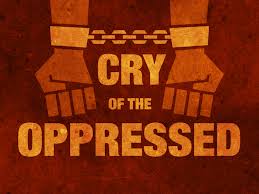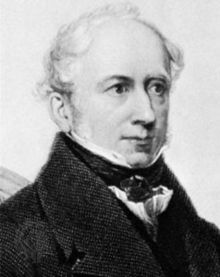A liberation-theology Epiphany hymn? Surely you jest! Maybe not, as we shall see by looking at the hymn Hail to the Lord’s Anointed, and Psalm 72, on which it is based.
Hail to the Lord’s Anointed,
great David’s greater Son!
Hail, in the time appointed,
his reign on earth begun!
He comes to break oppression,
to set the captive free,
to take away transgression,
and rule in equity.
He comes, with succour speedy,
to those who suffer wrong;
to help the poor and needy,
and bid the weak be strong;
to give them songs for sighing,
their darkness turn to light,
whose souls, condemned and dying,
were precious in his sight.
He shall come down like showers
Upon the fruitful earth;
And love, joy, hope, like flowers,
Spring in His path to birth:
Before Him on the mountains
Shall peace, the herald, go;
And righteousness, in fountains,
From hill to valley flow.
Kings shall fall down before him,
and gold and incense bring;
all nations shall adore him,
his praise all people sing;
to him shall prayer unceasing
and daily vows ascend,
his kingdom still increasing,
a kingdom without end.
O’er every foe victorious,
he on his throne shall rest;
from age to age more glorious,
all-blessing and all-blest.
the tide of time shall never
his covenant remove;
his name shall stand for ever,
his changeless Name of love.
Psalm 72
1{A Psalm for Solomon.} Give the king thy judgments, O God, and thy righteousness unto the king’s son.
2He shall judge thy people with righteousness, and thy poor with judgment.
3The mountains shall bring peace to the people, and the little hills, by righteousness.
4He shall judge the poor of the people, he shall save the children of the needy, and shall break in pieces the oppressor.
5They shall fear thee as long as the sun and moon endure, throughout all generations.
6He shall come down like rain upon the mown grass: as showers that water the earth.
7In his days shall the righteous flourish; and abundance of peace so long as the moon endureth.
8He shall have dominion also from sea to sea, and from the river unto the ends of the earth.
9They that dwell in the wilderness shall bow before him; and his enemies shall lick the dust.
10The kings of Tarshish and of the isles shall bring presents: the kings of Sheba and Seba shall offer gifts.
11Yea, all kings shall fall down before him: all nations shall serve him.
12For he shall deliver the needy when he crieth; the poor also, and him that hath no helper.
13He shall spare the poor and needy, and shall save the souls of the needy.
14He shall redeem their soul from deceit and violence: and precious shall their blood be in his sight.
15And he shall live, and to him shall be given of the gold of Sheba: prayer also shall be made for him continually; and daily shall he be praised.
16There shall be an handful of corn in the earth upon the top of the mountains; the fruit thereof shall shake like Lebanon: and they of the city shall flourish like grass of the earth.
17His name shall endure for ever: his name shall be continued as long as the sun: and men shall be blessed in him: all nations shall call him blessed.
18Blessed be the LORD God, the God of Israel, who only doeth wondrous things.
19And blessed be his glorious name for ever: and let the whole earth be filled with his glory; Amen, and Amen.
20The prayers of David the son of Jesse are ended.
The King James translation indicates that this is song written by David for his son Solomon. The song addresses Solomon in exaggerated terms that could be fulfilled only by the Messiah, but Solomon in his wisdom and peacefulness foreshadows the Messiah: “One greater than Solomon is here.”
David proclaims in hope that his son, Solomon, shall reign to the ends of the earth, that kings from afar will bring him gifts, that all nations shall serve him. Solomon’s wisdom will be in service of justice, especially justice for the poor and oppressed, whom he will redeem. Therefore all nations will call him blessed. Such hopes no merely human king could fulfill, and therefore Coffman’s Commentary lists the ways in which Solomon is a type of Christ.
- Just as the First Israel had its most glorious extent under Solomon; so shall the Second Israel, the Church of God though Christ attain to eternal glory in Christ.
- Solomon was a son of David; Jesus Christ is The Son of David.
- Solomon reigned over the earth from the Euphrates to the Mediterranean Sea; but Christ’s dominion is “to the uttermost parts of the earth.”
- Solomon’s wisdom was known all over the world; but “In Christ all the treasures of wisdom and knowledge are hidden.”
- Solomon’s reign was one of peace; and Christ our Lord is the Prince of Peace, “And of the increase of his government and of peace, there shall be no end.”
- Solomon sat upon the literal throne of David in Jerusalem; but Christ, risen from the dead and seated at the right hand of the Majesty on High, is seated upon the Throne of David in heaven (Acts 2:30-31).
- Kings and rulers of all the world of Solomon’s day honored him and brought presents to him. In Christ’s kingdom, “The kings of the earth bring their glory into Christ’s kingdom” (Revelation 21:24); and even in the manger at Bethlehem the kings of the earth brought unto Christ gifts of gold, and frankincense and myrrh.
But Coffman does not consider the several passages in the psalm about the judgment that shall save the poor and needy.
James Montgomery
James Montgomery (1771-1854), the English author of the hymn Hail to the Lord’s Anointed noticed these passages. For thirty years he edited a radical paper; in the fears that swept England after the French Revolution he was twice jailed because of his advocacy of social justice. He was an advocate for the end of the slave trade and of the exploitation of child chimney sweeps. During his time in jail he wrote poetry, including probably this hymn. It was first sung on Christmas Day, 1821, at a Moravian gathering
Montgomery proclaims, following the Psalm that the Messiah, great David’s greater son, comes
to those who suffer wrong;
to help the poor and needy,
and bid the weak be strong;
to give them songs for sighing,
their darkness turn to light,
whose souls, condemned and dying,
were precious in his sight.
The Messiah comes, not with violence, but like
showers
Upon the fruitful earth;
And love, joy, hope, like flowers,
Spring in His path to birth:
Before Him on the mountains
Shall peace, the herald, go.
On this Martin Luther King Day we remember one who defended the oppressed without violence but with peaceful means based on Christian love. Violence, even in a just cause, tends to beget violence in an endless downward cycle. For Montgomery, the world had been struggling long and hard with sin and oppression, a world that could (and can) be redeemed only by the One whose name is Love. Christian societies are often guilty of oppression, but unlike other historical societies, they contain a dynamic that calls for the oppressed to be freed, whether it was Martin Luther King or William Wilberforce who led the campaign to abolish the slave trade or Bartholmé de las Casas who sought to protect the natives of the Americas against the conquistadors. Christians have been oppressors, but other Christians have championed the oppressed and sought the liberation of both the sinful oppressor from his sin and the poor from oppression.
(The hymn abbreviates the original poem, and there is one significant change. In the original poem the last line was His name to us is love. The hymnal change this to his changeless Name of love. I think this is an improvement; it fits in better with the emphasis in the final lines about the enduringness of the covenant, and the “to us” is a little odd. Who are the “us”? Are there those to whom His name is not love? I think the change an improvement.
The last line also echoes the last lines of Charles Wesley’s hymn Come, O Thou Traveler unknown:
I leap for joy, pursue my way,
And, as a bounding hart, I run,
Through all eternity to prove
Thy nature and Thy name is Love.
For in the end beyond all ends, there is One whose name is Love, and in Him “all shall be well, and all shall be well, and all manner of thing shall be well.”)

